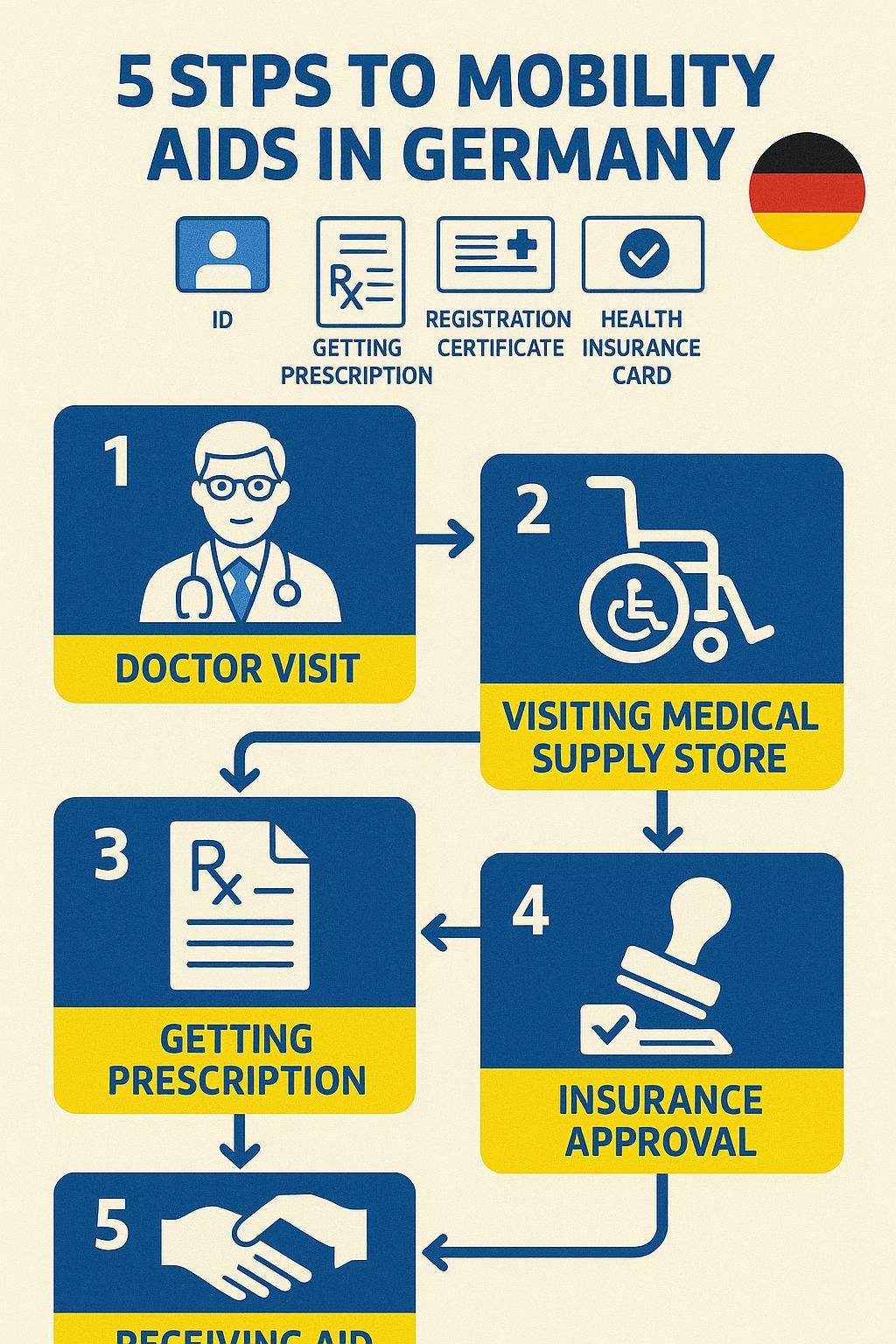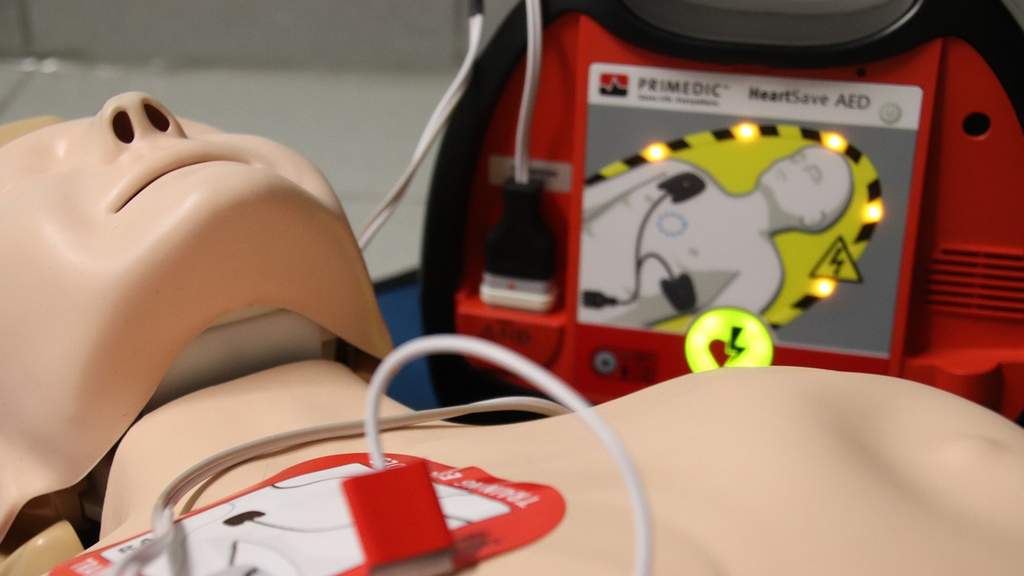Finding your way in Germany as a Ukrainian refugee is a particular challenge, but also offers considerable opportunities for care. The German healthcare system offers comprehensive support for autism spectrum disorders, and Ukrainian refugees with temporary protection status can access these services through various channels.
Key findings
- Ukrainian refugees can access autism support services through the German statutory health insurance system
- The diagnostic process requires referrals from GPs to specialised centres
- Early intervention therapies are covered by health insurance, but can involve waiting times of several months
- Children with autism have the right to inclusive education and additional support in German schools
- Various organisations offer Ukrainian-language help to navigate the system
Healthcare rights for Ukrainian refugees
As a Ukrainian refugee in Germany, you are entitled to comprehensive healthcare. Since 1 June 2022, Ukrainian refugees have been receiving benefits from the regular social welfare system (citizen’s allowance/social assistance) and no longer the limited benefits for asylum seekers.
This change significantly improves access to specialised healthcare services, including autism diagnosis and therapy. With temporary protection status (§24 Residence Act), you can register with the statutory health insurance scheme (GKV) and receive an electronic health card.
This insurance covers necessary medical treatments, therapies and aids for autism if they are prescribed by a doctor. The insurance cover includes professional assessment, behavioural therapy, speech therapy, occupational therapy and other measures recommended for autism spectrum disorders.

Understanding the German autism support system
In Germany, autism is served by a multidisciplinary system that includes health, education and social services. Autism is recognised as a neurological disorder that requires specific therapeutic interventions and support.
The German system distinguishes between medical treatment (which is covered by health insurance) and social integration services (which are provided by social services). This distinction sometimes causes confusion, but both aspects are crucial for comprehensive autism support.
Some of the key terms you will come across include: Autism Spectrum Disorder, Early Intervention, Inclusion Support and Participation Plan. Understanding these terms will help you navigate the support structures in place.
German autism services generally include a combination of medical therapies, educational support and social integration measures. The aim is to provide individualised support based on each person’s specific needs and strengths.
Diagnostic procedure for autism
An autism diagnosis is made in Germany in a structured way. The first step is a consultation with the family doctor, who can issue a referral to specialised services.
For children, paediatricians can refer to child and adolescent psychiatrists or specialist autism centres. For adults, general practitioners refer to neurologists or psychiatrists with experience in the assessment of autism.
The diagnostic process usually involves the following steps:
- Comprehensive developmental history interview
- Standardised assessment tools and questionnaires
- Direct observation of behaviour and social interaction
- Cognitive and language assessments
- Medical examinations to rule out other illnesses
Bring previous documentation from Ukraine, if available, even if it is not in German. The medical facilities can have important documents translated, but this may take additional time.

Educational support for children with autism
Children with autism have the right to education with appropriate support in Germany. The German education system increasingly emphasises inclusive education and enables children with autism to attend mainstream schools with additional support.
In order to access educational support, you need an autism diagnosis and often also an assessment of special educational needs. This assessment will determine the type and level of support your child needs.
The options for educational support include
- School escorts/integration assistants who provide individualised support
- Modified learning materials and assessment methods
- Special education teachers working alongside regular teachers
- Resource rooms for sensory breaks or concentrated work
- Individualised support plans tailored to your child’s needs (support plan)
I recommend that you contact the education authority or headteacher of your school directly to discuss your child’s needs. Many schools have inclusion coordinators who can support you in drawing up suitable support plans.
Therapeutic interventions and medical support
Once a diagnosis has been made, people with autism can take advantage of various therapeutic interventions. These therapies aim to promote communication, social skills and adaptability while reducing challenging behaviours.
Common therapies that are covered by German health insurance companies include
- Applied Behaviour Analysis (ABA) and structured teaching methods
- Speech therapy (speech and language therapy)
- Occupational therapy to promote sensory integration and everyday skills
- Psychotherapy with a focus on social skills and emotion regulation
- Training programmes for parents and carers
To take advantage of these therapies, you will need a doctor’s prescription stating the type of therapy, frequency and duration. The prescription should include the diagnosis code and a medical justification for the therapy.
Medication may be prescribed for co-occurring conditions such as anxiety, attention deficit disorder or sleep problems. These medications are covered by health insurance if they are prescribed by a specialist.
Practical steps for accessing support
Accessing support services for autistic people in Germany involves several practical steps. I will outline these steps to help you navigate the system efficiently.
Firstly, make sure you are properly registered and documented: valid identity card/passport, registration certificate and residence permit or fiction certificate with §24 endorsement. These documents are essential for registration in the healthcare system.
You then register for health insurance at the social welfare office in your municipality. You will then receive an electronic health card, which will give you access to medical services. If you need suitable housing that meets autism-related needs, you should also apply for a housing entitlement certificate.
Once you are insured, find a family doctor who can refer you to specialists. Ask refugee support organisations or other Ukrainian families for recommendations for doctors who speak Ukrainian, Russian or English.
After you have received a diagnosis, work out a treatment plan together with the specialists. Ask for written recommendations that you can pass on to other service providers such as schools or social services.
Social integration and support services
In addition to medical and educational support, social integration services offer additional help for people with autism. These services aim to promote participation in community life and independence.
Social integration services (inclusion support) can include the following:
- Support with coping with everyday life and household management
- Support with leisure activities and participation in social life
- Support with vocational training and employment
- Forms of housing, ranging from independent living with support to specialised residential groups
- Family support services that offer respite care
To make use of these services, you must submit an application to your local social welfare office. They will determine your needs and draw up a participation plan. This plan describes the specific support services that the person with autism will receive.
The application process usually involves submitting the autism diagnosis, a detailed assessment of support needs and sometimes a socio-medical report. The social workers of the refugee support organisations can help with this application process.
Alternative support options
During the waiting period for official benefits, which can take several months, various organisations offer immediate assistance. These resources can provide valuable transitional support and connection to the community.
National autism organisations such as Autismus Deutschland e.V. have regional branches throughout Germany that provide information, parent groups and sometimes direct services. Many have developed special programmes for refugee families.
Parent-led support groups offer emotional support and practical advice based on personal experience. Some groups specifically target multilingual families or have Ukrainian/Russian-speaking members.
Welfare organisations such as Caritas, Diakonie and the German Red Cross (DRK) offer various support services for refugees with disabilities. They can often provide practical help, donated aids and guidance through the system.
Online resources such as Handbook Germany (handbookgermany.de) provide information in Ukrainian on access to healthcare and support for people with disabilities. The website “Germany4Ukraine” also offers valuable information in Ukrainian and Russian.
Overcoming language and cultural barriers
Language barriers can be a major challenge when accessing autism services. However, there are several resources available to overcome these barriers.
Translation assistance is available from social services, integration centres and voluntary organisations. For medical appointments, you have the right to request a professional interpreter, although availability varies by location.
Many documents on autism support are available in Ukrainian or Russian through organisations such as the Federal Government Commissioner for Migration, Refugees and Integration. Look for resources created specifically for Ukrainian refugees.
Cultural differences in the understanding of autism and disability can also be a challenge. German approaches to autism focus heavily on evidence-based interventions and inclusion, which may differ from approaches in Ukraine.
I recommend liaising with Ukrainian communities in Germany who have already navigated these systems. Their first-hand experience can provide valuable insights and practical advice tailored to your cultural context.
Financial support and assistance
Families supporting a person with autism may be entitled to additional financial support. Understanding these benefits can help ease the financial pressure while accessing the services they need.
People with severe disabilities can apply for a severe disability card, which offers various benefits including tax reductions, transport discounts and employment protection. The application is made via the local benefits office.
For children with autism, additional child benefit can be paid over and above the normal age limit. Care allowance can also be granted if there is evidence of a significant need for care.
Adults with autism who are unable to work due to their condition may be entitled to disability benefits. The amount of benefits depends on various factors, including employment history and the severity of the disability.
Do not hesitate to ask the social workers in the refugee support centres about these financial aids. They can help you understand what you are entitled to and assist you with the application process.
Plan for long-term support
Once immediate needs have been met, it is important to plan for long-term support. This includes building a network of services that will provide ongoing support as your needs change.
Regular reassessment of needs is crucial, especially for children who are growing and developing. Services should be adapted to changing circumstances and developmental progress.
For children approaching adulthood, transition planning should begin early. The German system provides various supports for adults with autism, including vocational training, supported employment and independent living support.
Consider appointing a legal guardian or representative for adults with autism who need support in making decisions. This legal guardian ensures that their interests are represented in health, financial and housing decisions.
Document your experience with the system to help others in similar situations. Many organisations that support refugees welcome feedback to improve their services for families with autism.
Sources
Federal Ministry of Labour and Social Affairs — FAQ for Ukrainian refugees
Federal Ministry of Health — Guide for refugees
Germany4Ukraine — Information portal on health care
Federal Government Commissioner for Migration, Refugees and Integration
EU Equal Treatment Centre — Healthcare in Germany
Handbook Germany — Information on medical care for Ukrainians

